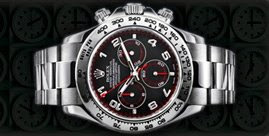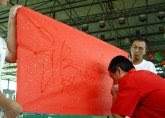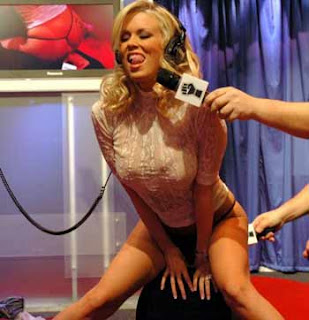
photo by Whappen
Interesting, fun, humorous, strange, lucid and all other people who are not common.
Clerks.
In all Justices' Courts, the justices are required to make and
preserve their own dockets. The Clerk of the Court of Appeals is
appointed by the court; the Clerks of the Circuit and Corporation
Courts are elected by the people of the county or corporation in
which the court is held. They hold office for a term of eight
years. Salary, fees and special allowances.
Duties. Shall record the proceedings of their respective courts
and issue writs in their name; shall be the custodians of all
papers lawfully returned to or filed in the Clerk's office; shall
perform such other duties as are imposed upon them by law.
The Tipstaff and Crier are the executive officers of the Court of
Appeals.
For meaning of DOCKET, see under Chancery Court of the City of
Richmond. DOCKETS here mean entries in a book giving lists of
names of persons connected with the cases tried, and particulars
of the proceedings in each case. In justices' courts such dockets
are made and kept by the justice himself.
The clerks of the courts mentioned have no salaries. They are paid
by fees and special allowances. For example, when a clerk of court
makes out a writ or bond or a copy of any court document, he gets
a fee for doing it. A special allowance is an allowance (or a grant of money)
made by the court for special work done.
The TIPSTAFF and CRIER are executive officers of the Court of
Appeals--that is, they execute or carry out certain orders of the
court. In some places a sheriff's officer is called a tipstaff,
the name being derived from the custom of such officers bearing a
STAFF TIPPED with metal.
Criers sometimes are appointed for other courts besides the Court
of Appeals. The name is derived from the practice of proclaiming
or CRYING out in court the commands or orders of the judge.
Sheriff.
The Sheriff is the executive officer of the Circuit Court, and of
the Circuit and Chancery Courts of the city of Richmond; the City
Sergeant is the executive officer of the Corporation Courts and
Circuit Courts held for cities, and the Hustings Court for the
city of Richmond; the Constable is the executive officer of the
Justice's Court.
Though the sheriff is an officer of the courts, he is more
particularly a county officer. His principal duties will,
therefore, be found set forth and explained under County Officers. The city
sergeant is also a court officer, but his
duties are limited to cities. They are stated and explained under
Government of Cities and Towns. The duties of the constable, who
is a magisterial district officer, are explained under District
Organization.
Commonwealth's Attorney.
Elected by the people at the general election in November for a
term of four years; must reside in the county or corporation for
which he is elected; shall hold no other elective office. Salary,
allowance by the Board of Supervisors and fees.
Duties. Gives legal advice to the county and district officers,
and prosecutes criminals in the Circuit and Corporation Courts.
LEGAL ADVICE is advice on matters of law. The commonwealth's
attorney prosecutes criminals--that is, he attends in court and
makes the charge, or states the case, and examines witnesses,
against persons charged with crime.
A WITNESS is a person who tells on oath, in answer to questions,
what he knows about the crime charged against the accused, or
about the facts in a civil case or process.
Attorney-at-Law.
Must hold license granted by any three or more judges of the
Supreme Court of Appeals acting together under such rules and
regulations and upon such examination both as to learning and
character as may be prescribed by the said Court; must be a male
citizen over the age of twenty-one years; must have resided in the
State six months preceding application for a license; and must
qualify before the Court in which he proposes to practice.
An ATTORNEY-AT-LAW is a person legally qualified and licensed to
act as attorney. A person not a lawyer might be called an attorney
if appointed to do any business on behalf of another, but to be an
attorney-at law a person must be qualified as stated in the text.
(See under Attorney-General, page 29.) A LICENSE is a permission
to perform certain acts. It is usually in writing, and is issued
by persons having legal authority to do so.
An attorney-at-law must QUALIFY before the court in which he
wishes to practice. This means that he must produce evidence that
he is legally licensed, that he must take an oath that he will
perform his duties as an attorney, and also that he must take an
oath that he will be faithful to the Commonwealth of Virginia.
Who May Practice Law in Virginia.
Any person duly authorized and practicing as Counsel or Attorney at Law in any
State or Territory of the United States, or in the District of Columbia. But if
he resides in Virginia he must pay the prescribed license fee.
DULY AUTHORIZED means having received the proper license, and
having qualified. PRESCRIBED LICENSE FEE is a certain fee or
charge for the issuing of a license to practice in Virginia.
Juries.
Drawn by lot from a list of those well qualified to serve as
jurors, furnished by the Judge of the Circuit or Corporation
Courts. The list shall contain not less than one hundred nor more
than three hundred names.
All male citizens over twenty-one years of age who have been
residents of the State for two years, and of the county, city, or
town in which they reside for one year next preceding their being
summoned to serve as such and competent in other respects, are
WELL QUALIFIED to SERVE as jurors within the State. But certain
persons are disqualified as not competent, such as idiots,
lunatics, and persons convicted of bribery, perjury, embezzlement
of public funds, treason, felony or petit larceny.
Certain public officers and persons belonging to certain
professions are exempt from jury service. The governor, the
lieutenant-governor, postmasters, practicing physicians (doctors),
and many others, are exempt from the duty of serving on juries.
Juries in civil and misdemeanor cases are chosen by lot. Once
every year the judge of each circuit and corporation court makes
out a list containing the names of not less than one hundred and
not more than three hundred persons resident in the county or
corporation and well qualified to serve as jurors. These names are
written on slips of paper or ballots (each name on a separate
ballot) and the ballots, after being folded so that the names may
not be seen, are put into a box kept for the purpose by the clerk
of the court.
Ten days before any term of a court at which a jury may be
required, the clerk draws sixteen ballots from the box, without
looking at the names until they are all drawn out. The persons
whose names are thus drawn are summoned to attend at the term of
court. Should more than sixteen be required, more are summoned,
and on the day they attend the court their names are written on
ballots and placed in a box, and from them the juries for the
trial of cases are drawn in the manner already stated. This is
what is called choosing or selecting BY LOT, the word lot meaning
chance. It is considered the fairest way of forming a jury.
If jurors were appointed instead of being selected by lot, persons
having prejudice or ill feeling against one of the parties in the
case might be put on the jury, and the verdict rendered by such
jury might be a very unjust one. But when the selection is by lot
nobody knows who is to be on it, and so it is equally fair to both
sides.
The number of persons on a jury is usually twelve, but in a civil
case, if both parties consent, there may be a jury of only seven;
or, the case may be tried and decided by a jury of three persons,
one selected by each of the two parties to the suit, and the third
by the other two; or, by the judge without a jury.
For juries in cases of felony the names of twenty persons residing
at a distance from the place where the crime or offence is said to
have been committed are taken from a list furnished by the circuit
or the corporation court. Those twenty are summoned to attend the
court, and from them a jury panel of sixteen is selected. The
accused person may, without giving any reason, object to, or
strike off, any four of the sixteen, and the remaining twelve will
be the jury to try the case.
If the accused does not strike off any, or strikes off less than
four, a jury of twelve is selected from the panel by lot. The
attorney for the commonwealth--that is, the attorney who
prosecutes the accused--may CHALLENGE--that is, object to - a
juror, but he must assign a reason for his objection, and if the
judge decides in favor of his objection, the person challenged is
not put on the jury. A panel is a list of persons summoned to
serve as jurors.
To SUMMON is to call or notify a person or persons to appear in
court. A person who is summoned to attend as a juror and who,
without sufficient reason, fails or neglects to do so, may be
punished by a fine of not less than five nor more than twenty
dollars.
Persons summoned as jurors are entitled to receive one dollar per
day for service on a jury, and mileage at the rate of four cents
per mile travelled in going to and returning from court.
Grand Jury.
Consists of not less than nine nor more than twelve persons taken
from a list of forty-eight selected by the Judge of the Circuit or
Corporation Court from the qualified jurors of the county or city
in which his Court is held. A Special Grand Jury shall consist of
not less than six nor more than nine persons.
The principal duties of the GRAND JURY are mentioned under Circuit
Courts, page 55. The law requires that "the grand jury shall
inquire of and present all felonies, misdemeanors, and violations
of penal [criminal] laws committed within the jurisdiction of the
respective courts wherein they are sworn."
To PRESENT is to make a statement or PRESENTMENT to the court as
explained on page 55. Every grand jury has a chairman or speaker,
who is appointed by the court and is called the FOREMAN. The
foreman is required to take an oath or swear that he will "present
no person through prejudice or ill-will, nor leave any unpresented
through fear or favor," but that in all presentments he "shall
present the truth, the whole truth and nothing but the truth."
In this way the foreman is SWORN, and the other grand jurors must
swear that they will "observe and keep" the same oath taken by the
foreman. An oath is a solemn statement or declaration with an
appeal to God, or calling God to witness that what is stated is
true or that the person shall tell the truth.
Witnesses before giving evidence in courts at the trial of a case
must make oath or swear to "tell the truth, the whole truth and
nothing but the truth." While the witness is repeating the words
of the oath he holds a Bible or Testament in his hand, and kisses
it when he has repeated the words.
There are two kinds of grand juries--regular and special. There is
a regular grand jury at two terms in each year, of the circuit,
corporation, or hustings court. But a grand jury may be ordered by
a circuit, corporation, or hustings court at any time there may be
special or urgent need for it, and such grand jury is called a
SPECIAL grand jury.
Grand jurors are entitled to the same compensation and mileage as
petit jurors (see next section).
Petit Jury.
Consists of twelve members.
Duties. Hear evidence before the court in civil and criminal cases
and render a verdict according to the law and evidence.
The PETIT JURY is the jury impanelled--that is, put on a panel or
list--to try cases in court. How such a jury is formed is stated
under Juries (see page 68). Petit jurors, like grand jurors, must
take an oath to do their duty honestly. (The word jury is derived
from the Latin word jurare, which means to swear.)
It is the duty of the petit jury to hear the evidence in the case
it is to try, and to give a verdict in accordance with that
evidence. If the evidence presented before the court proves the
accused to be guilty, the jury must give a verdict of "guilty"; if
the evidence is not sufficient to show that he is guilty, they
must give a verdict of "not guilty." (For verdict, see page 11.)
The verdict of the jury must also be ACCORDING TO LAW. This means
that the jury must give heed to the law of the case as explained
by the judge. Evidence might be offered which would not be lawful.
It is the duty of the judge to decide whether evidence is lawful
or not, and if he decides that any evidence is illegal or
unlawful, then the jury must not pay any regard to it in
considering their verdict.
Virginia Contractor





